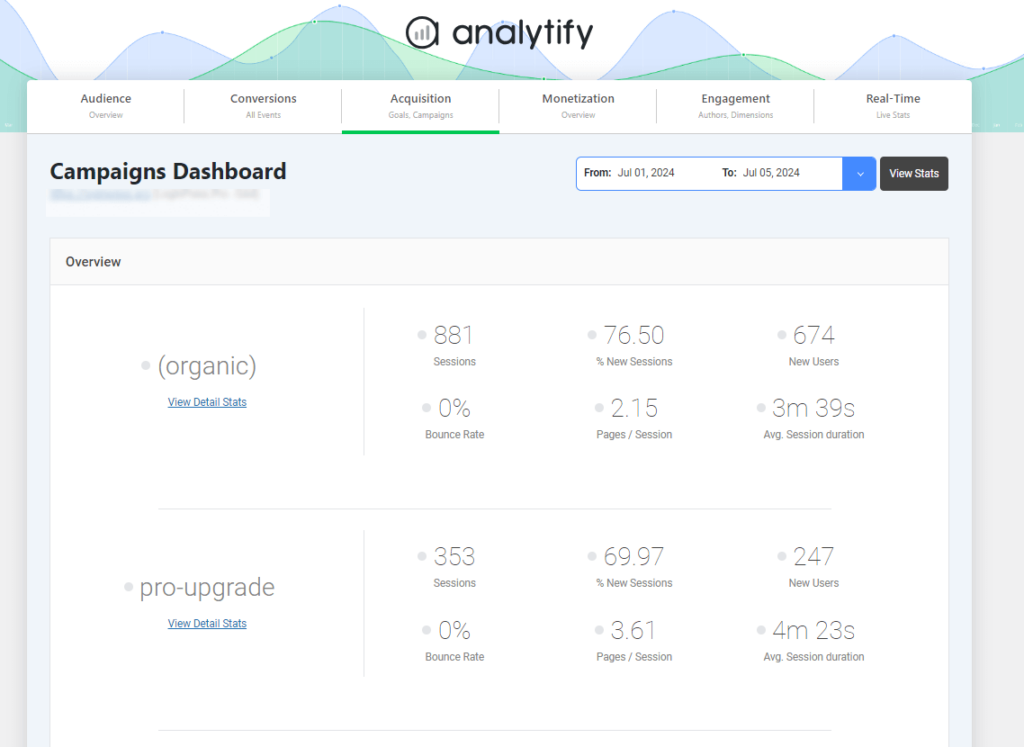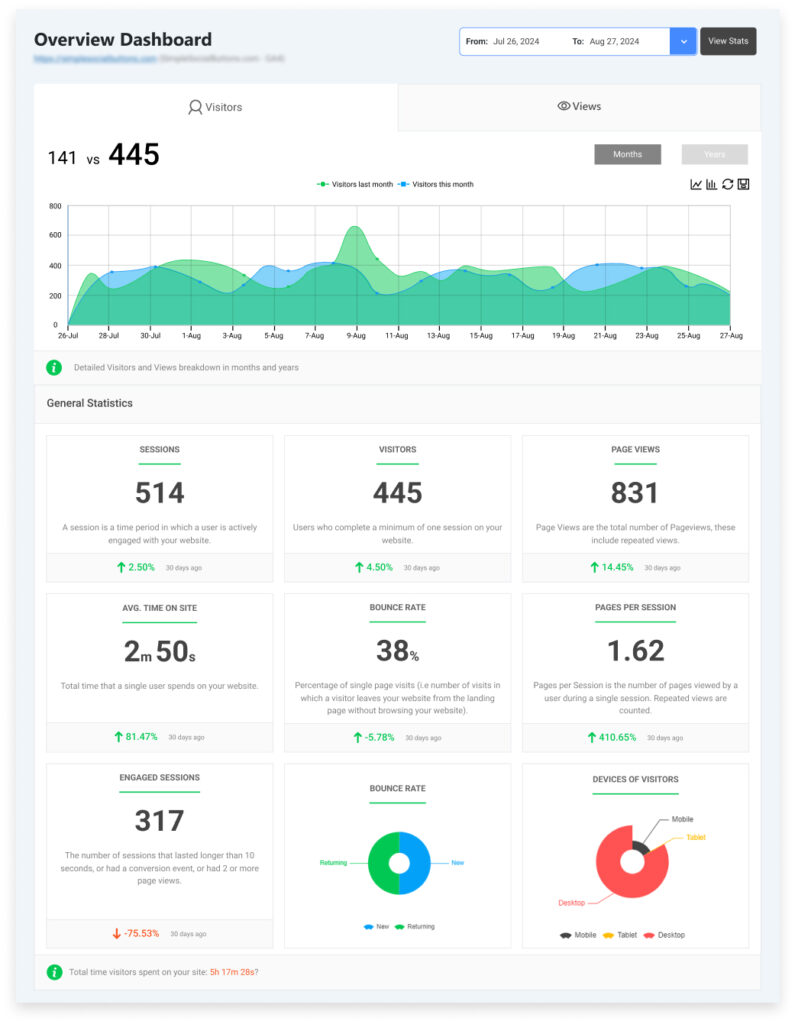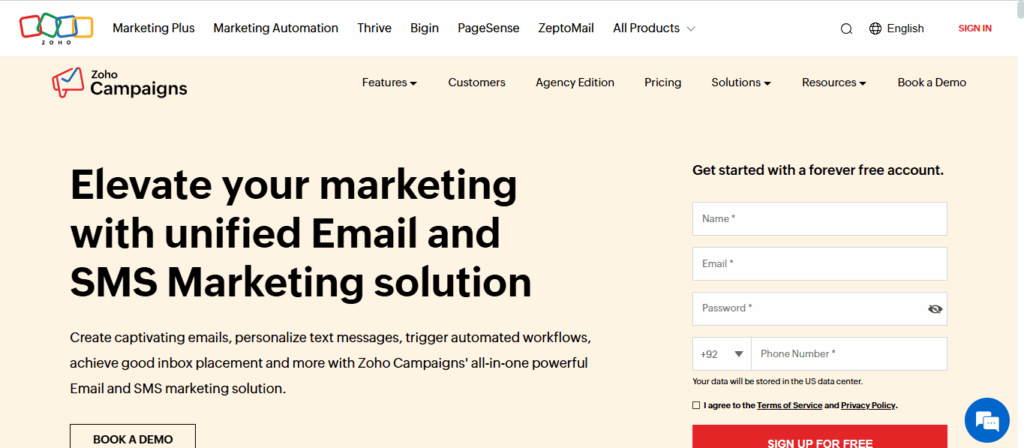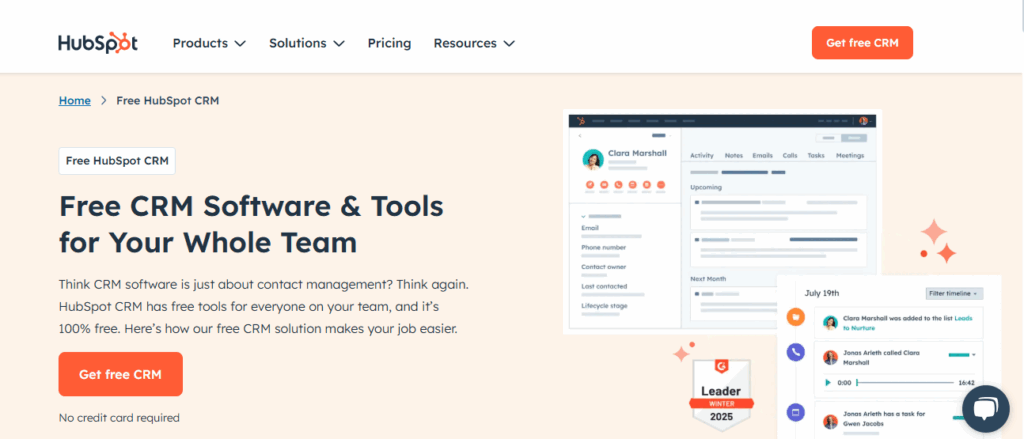
Top 7 Email Platforms to Grow and Track Success
The best email marketing platforms leave no gaps in your list-building, campaign, and automation efforts, letting you control your whole customer journey. The result? Email could become your primary source of revenue, ahead of even ads.
Even better, some email platforms have multichannel capabilities, letting you combine SMS, push notifications, and other channels to cover more touchpoints.
In this article, we’ll discover the 7 best email marketing tools that will help you grow your business and track the results in 2026.
Email Platforms (TOC):
Let’s have a quick comparison table of the best email marketing platforms.
| Email Marketing Plugins | Pricing from | Free option |
| Omnisend | $16/month | Yes |
| Brevo | $9/month | Yes |
| MailerLite | $10/month | Yes |
| Moosend | $9/month | No |
| Zoho Campaigns | $4/month | Yes |
| HubSpot | $20/month per seat | No |
| GetResponse | $19/month | No |
What Makes a Great Email Marketing Platform?
The right platform handles the heavy lifting so you can focus on messaging.
List growth, performance tracking, integrations, and scalability separate professional tools from basic email senders. Look for these characteristics:
Helps you Grow your List Faster
Email capture should occur everywhere your customers engage, including checkout flows, blog posts, and exit moments. Standard popups are good, but slide-out forms and gamification turn signups into entertainment with spin wheels offering discounts.
Mobile visitors need thumb-friendly forms that load instantly, and the best platforms time popups based on scroll depth or time on page, not annoying everyone immediately.
Gives you Clear Insights into Performance
Raw open rates tell partial stories; you need revenue attribution, conversion tracking, and subscriber journey mapping.
Look for dashboards showing which campaigns drive actual purchases, not just clicks. Heatmaps reveal where readers engage or abandon messages.
Segment performance comparisons show whether VIP customers outperform discount hunters. Export capabilities let you analyze data in spreadsheets when built-in reports fall short.
Connects Easily with Your Existing Tools
Native apps for Shopify, WooCommerce, and Wix eliminate technical headaches. Order data and customer profiles should sync automatically and in real-time to avoid data gaps.
CRM connections will help to unify your sales and marketing data, so that your team can work from one customer view. The same goes for ad platform integrations with Facebook and Google, which should track campaign ROI across channels.
Join 50,000+ beginners & professionals who use Analytify to simplify their Website Analytics!
For businesses using WordPress, Analytify is an excellent plugin that integrates directly with Google Analytics to provide in-depth, user-friendly reports. This tool allows you to track and visualize your website’s performance, providing actionable insights into how your email marketing campaigns are driving traffic and conversions.
Key Features:
- Google Analytics Integration: Syncs with Google Analytics for real-time, accurate performance tracking.
- Easy Dashboard: View campaign results, including click-through rates, conversion data, and revenue metrics, all from your WordPress dashboard.
- Email Campaign Tracking: Directly track how email campaigns impact your website traffic, sales, and user behavior.
Why Choose Analytify?
Analytify streamlines the process of connecting Google Analytics with your WordPress site, making it easy for marketers to measure success and optimize their campaigns based on real-time data.
Works for Your Budget and Scale
Some platforms bundle everything in base plans, while others charge more for marketing automation, segmentation, or support. Remember that entry pricing means nothing if features disappear behind paywalls as you grow.
Email tools have pricing structures based on message limits, contact tiers, and feature restrictions. Free plans should offer enough functionality to test correctly. Paid plans need room to grow without forcing platform switches.
Best Email Marketing Platforms (2026 Picks)
Check out these email marketing tools to grow and track your success:
1. Omnisend — Best for Ecommerce Marketing
Omnisend brings email, SMS, and push notification marketing to your store with campaigns and automations. You can track revenue for each channel to see what’s driving sales and A/B test messages to refine your approach for better results.
Key Features
- Multi-channel workflows merge email, SMS, and push
- Performance analytics track revenue by channel
- Includes popups, forms, and landing pages
- Unlimited segmentation across all pricing tiers
- Real-time behavior tracking guides messaging
- Platform apps, including Shopify and WooCommerce
- 24/7 support even on free plans
- Product recommendation engine personalizes content
Pricing
- Free: 500 emails/month, 250 contacts
- Standard: $16/month for 6,000 emails
- Pro: $59/month for unlimited emails plus bonus SMS credits equal to the price of your monthly plan
Why choose this email tool?
All standard features come with every plan, so you won’t face restrictions when ready to expand campaigns or build complex automation sequences.
2. Brevo — Best for SMEs Wanting CRM Integration
AI content creation speeds up campaign building while the built-in CRM tracks customer interactions beyond just email opens. Send-time optimization and dynamic list updates keep messaging relevant without constant manual work.
Key Features
- Transactional email API handles order confirmations
- Pay-as-you-go SMS keeps costs flexible
- Send-time optimization improves open rates
- Contact lists update dynamically
- Multi-language support covers global audiences
- Mobile app manages campaigns remotely
- Chat widget adds website communication
- Meeting scheduler books appointments directly
Pricing
- Free: $0/month, 300 emails/day
- Starter: From $9/month, 5,000 emails/month
- Business: From $18/month, includes automation and AI
- Enterprise: Custom pricing with unlimited contacts
Why choose this email tool?
Small businesses get enterprise tools alongside CRM functionality, keeping customer data organized without juggling multiple platforms or complex integrations.
3. MailerLite — Best for Creators and Physical Stores
Website building comes standard, even on free accounts. Digital product selling lets creators monetize directly from email campaigns, skipping third-party checkout systems and keeping everything under one roof.
Key Features
- Landing page builder requires zero coding
- Interest groups organize subscribers naturally
- Digital downloads sell products instantly
- iPad app enables mobile campaign creation
- Survey tools gather customer feedback
- Newsletter referral system grows lists organically
Pricing
- Free: Up to 1,000 subscribers, 12,000 monthly emails
- Growing Business: From $10/month, unlimited emails
- Advanced: From $20/month with AI writing assistant
- Enterprise: Custom pricing for 100k+ subscribers
Why choose this email tool?
Physical stores and creators benefit from integrated website tools and product selling, eliminating the need for separate hosting or ecommerce platforms. EmailVendorSelection rates MailerLite 4 out of 5 for its user-friendly design, affordability, and comprehensive feature set that caters perfectly to small businesses and content creators. Physical stores and creators benefit from integrated website tools and product selling, eliminating the need for separate hosting or ecommerce platforms.
4. Moosend — Best for Automation Newcomers
Visual workflow builders turn automation from intimidating to intuitive. AI powers content suggestions while templates mean you’re customizing proven campaigns, not starting from scratch and hoping for success.
Key Features
- Heatmap analytics show engagement patterns
- Product recommendations boost sales
- Five team accounts on basic plans
- The template library covers major industries
- Real-time reporting tracks performance
- List verification cleans databases
- GDPR tools ensure compliance
- Countdown timers create urgency
Pricing
- Pro: $9/month
- Moosend+: Custom pricing
- Enterprise: Custom pricing
Why choose this email tool?
Marketing novices appreciate visual automation builders and AI assistance, getting professional results without hiring agencies or learning complex software.
5. Zoho Campaigns — Best for Budget-conscious Businesses
Unlimited emails and seamless ecosystem integration mean customer data flows between sales, support, and marketing tools without manual exports. Send-time optimization and journey builders come standard.
Key Features
- Send-time optimization finds ideal delivery windows
- Contact path tracking maps customer journeys
- Dynamic content personalization at scale
- Mobile app enables remote management
- Ecommerce tools track purchase behavior
- Social media posting extends reach
- Journey builder visualizes automation
- Pre-designed templates speed creation
Pricing
- Free: $0/month for 2,000 contacts
- Standard: $4/month
- Professional: $6/month
Why choose this email tool?
Zoho users already have their data connected, making campaign setup instant. Everyone else gets unlimited emails and solid features for less than a coffee subscription.
6. HubSpot — Best for Combining Email with Live Chat
Chat widgets answer questions instantly while automated emails nurture leads who aren’t ready to buy. Both channels feed the same contact database, so you see every touchpoint from first visit to purchase.
Key Features
- 5,000 email templates cover every industry
- Form builder captures qualified leads
- Live chat engages website visitors
- Marketing dashboards visualize performance
- Attribution reporting measures ROI
- Team collaboration tools coordinate efforts
- Mobile optimization ensures deliverability
Pricing
- Starter: $20/month per seat
Why choose this email tool?
Service businesses needing immediate customer communication alongside email campaigns find value in HubSpot’s combined approach to marketing and support.
7. GetResponse — Best for Visual Campaign Builders
Intuitive visual editors make email creation straightforward for design-challenged marketers. Dark mode preview ensures messages look professional across all viewing preferences, addressing modern email client trends.
Key Features
- Autoresponder series nurture leads automatically
- RSS-to-email publishes blog content
- Click tracking measures engagement
- Custom DKIM improves deliverability
- Inbox preview prevents rendering issues
- Basic webinar hosting expands reach
- Annual billing saves 18%
Pricing
- Starter: $19/month
- Marketer: $29/month
- Creator: $49/month
- Enterprise: Custom pricing
Why choose this email tool?
Visual learners and beginners find GetResponse’s interface matches their workflow, turning email marketing from a chore into a creative outlet.
Frequently Asked Questions
1. What are the top email marketing platforms for growth and performance tracking?
Some of the leading email marketing platforms for growth and performance tracking include Omnisend, Mailchimp, Constant Contact, ConvertKit, and ActiveCampaign. These platforms offer powerful features like automation, analytics, and segmentation to help you monitor and optimize the success of your email campaigns.
2. How do email marketing platforms help measure campaign success?
Email marketing platforms help measure campaign success by providing detailed analytics such as open rates, click-through rates, bounce rates, and conversion rates. These metrics allow you to assess how well your emails are performing and identify areas for improvement.
3. Why is it essential to select the right email service provider for tracking success?
Selecting the right email service provider is crucial for tracking success because it allows you to analyze the performance of your email campaigns, engage with targeted audiences, and refine your strategies based on real-time data. A good platform helps you measure the effectiveness of your emails and improve future campaigns.
4. Can email marketing platforms assist in growing my email subscriber list?
Yes, most email marketing platforms offer tools that help grow your subscriber list. Features like customizable sign-up forms, landing pages, and pop-up forms are designed to attract new subscribers. Additionally, they provide segmentation options for targeted email campaigns that engage potential subscribers.
5. How can I optimize my email campaigns for better results using email platforms?
To optimize email campaigns for better results, focus on personalization, test subject lines and email copy through A/B testing, and use automation to ensure timely delivery. Many platforms offer detailed analytics that help you evaluate and tweak strategies based on how well your emails are performing.
Best Email Marketing Tools: Final Thoughts
Omnisend leads for ecommerce with unified multi-channel marketing, while Brevo combines email with CRM for small businesses. MailerLite serves creators with built-in websites, and Moosend makes automation accessible to beginners.
Zoho Campaigns offers unbeatable pricing at $4/month, HubSpot merges email with live chat, and GetResponse provides visual tools for design-focused marketers.
We hope this guide has helped you choose the best email marketing platform.
More relevant resources:
Which email marketing platform have you found the best, so far? Share your thoughts with us below.













